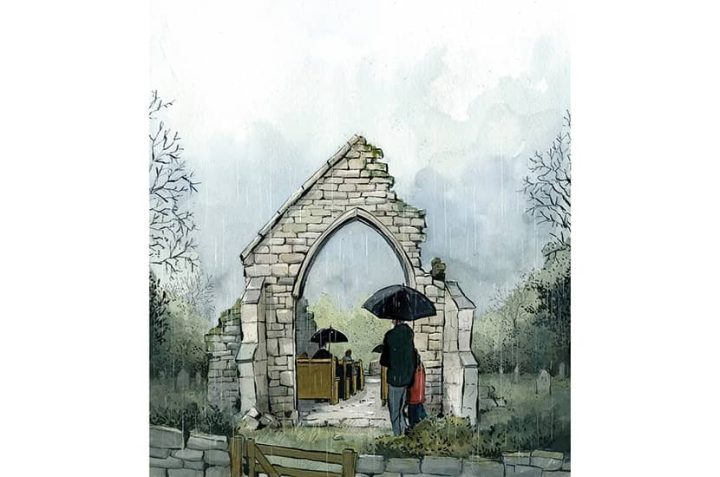According to the census, British Christianity is having a disastrous century. In the 2001 census, a clear majority of people in England and Wales – 72 per cent – described themselves as ‘Christian’. In 2011, this figure fell to 59 per cent. And now, it’s another drop: a 13 percentage point drop to 46 per cent.
These figures suggest that a Christian country has imploded within the space of two decades. Will the figure continue to fall at this rate? Will Christianity disappear from this land within 40 years?
Probably not. What the census shows is that ‘cultural Christianity’ has dramatically fallen. For of course this is all that the census can tell us about. It does not delve any further than asking about people’s religious allegiance. It does not inquire into people’s beliefs or church attendance or any other form of practice. Back in 2001, other surveys suggested that far fewer than 72 per cent were Christian in any real sense – and of course actual church attendance was already very low, about 7 per cent.
So what the last few census results tell us is that people are becoming less inclined to claim Christian identity when they are not actively religious. They prefer to tick the ‘no religion’ box. Did these people who used to tick the ‘Christianity’ box have a vague belief in God, which Richard Dawkins has eroded? Or did they have a vague cultural allegiance to Christianity, which has diminished?
Last year a survey organised by Humanists UK tried to find out. As well as asking people’s religious allegiance, it asked those people who ticked ‘Christian’ why they ticked it. It found that about a third believed in Christian teaching. The rest said that they had been raised Christian, and that Britain was a Christian country. Humanists UK urged such people not to tick Christian, warning that cultural Christianity could blur with bigotry.
This perspective has gained ground – that it is dubious to claim Christian allegiance if one is not actively Christian. I sense the influence of identity politics. Seeing how passionately minority identities are held, people feel that it is dubious to claim an identity that is only vaguely held, that is not authentic. The average British agnostic probably still feels culturally Christian, but is wary of saying so. They feel positively about her country’s religious tradition, and are glad the C of E is still around, and like going to church twice a year, and reluctantly admit that humanist morality has Christian roots. Yet they feel uneasy about ticking the Christianity box. For they shouldn’t claim to be what they are not. Also, they slightly fear that populist politicians might exploit cultural Christianity.
There can be no ‘true’ survey of Christian allegiance, because it is too vague a thing. But in 2018 the British Social Attitudes survey asked a slightly more helpful question: ‘Do you regard yourself as belonging to a religious group?’ It prompted people to wonder if they have an active rather than inherited allegiance. 38 per cent identified as Christian. That is surprisingly few, if you want to think of Britain as a Christian-majorty country. But it’s surprisingly many, seeing how few attend church.
It’s nonsense to say that Britain is no longer a Christian country because this mark of Christian allegiance has fallen below the half-way point for the first time. In reality, people are becoming more wary of hypocrisy and inauthenticity, which you could say (if you want to annoy the atheists) shows the influence of Christian moral teaching.







Comments